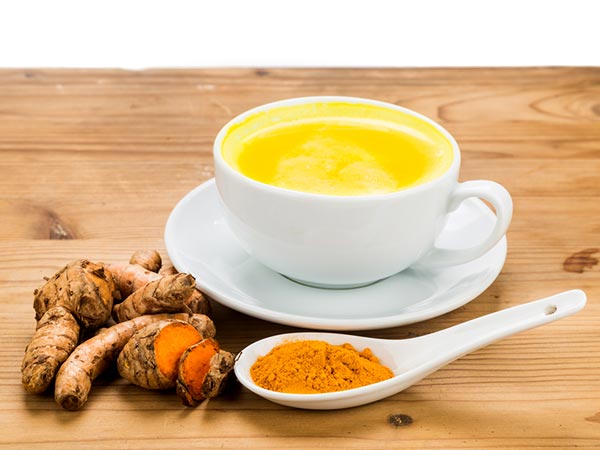Just In
- 9 hrs ago

- 12 hrs ago

- 12 hrs ago

- 15 hrs ago

Don't Miss
- Sports
 Pakistan vs New Zealand Live Streaming: PAK vs NZ Live Telecast in UK, USA and Canada
Pakistan vs New Zealand Live Streaming: PAK vs NZ Live Telecast in UK, USA and Canada - Movies
 Ranam OTT Release Date And Platform: When And Where To Watch Vaibhav Reddy Starrer Movie Online
Ranam OTT Release Date And Platform: When And Where To Watch Vaibhav Reddy Starrer Movie Online - Finance
 1:2 Stock Split: Record Date On April 24; Buy The Scrip Now To Be Eligible?
1:2 Stock Split: Record Date On April 24; Buy The Scrip Now To Be Eligible? - News
 Delhi Capital's Captain Rishabh Pant Gathers Praise For His Wicketkeeping Skills, Stunning Catch
Delhi Capital's Captain Rishabh Pant Gathers Praise For His Wicketkeeping Skills, Stunning Catch - Education
 SCCL Recruitment 2024; Application process, Selection criteria and more
SCCL Recruitment 2024; Application process, Selection criteria and more - Automobiles
 Mahindra 3XO SUV Latest Teaser Reveals Connected Car Tech: All Details Here
Mahindra 3XO SUV Latest Teaser Reveals Connected Car Tech: All Details Here - Technology
 OnePlus 13 Early Leak Hints at a Revamped Camera Island, and Fast Charging to Remain at 100W
OnePlus 13 Early Leak Hints at a Revamped Camera Island, and Fast Charging to Remain at 100W - Travel
 From Coconut Breaking on Head to Men Dressing as Women: 12 Unique Indian Rituals Explored
From Coconut Breaking on Head to Men Dressing as Women: 12 Unique Indian Rituals Explored
Side Effects Of Turmeric-Ginger Tea You Need To Know
Listed here are a few of the side effects of drinking too much of turmeric-ginger tea. Check them out.
Tea is an aromatic beverage that has originated from southwest China, which slowly got spread all over the world in the past years. It is the 2nd most popular drink consumed all around the world, 1st is water.
Though tea started its journey as a medicinal drink, but with time, it became so popular that it can be found in every household today.
Tea is often consumed by brewing tea leaves with hot boiling water. Floral, herbal and spicy flavourings can be added into this freshly brewed drink, depending on the requirements. To enhance the taste, sugar and milk are also added.
Turmeric-ginger tea is one such type of tea that is loaded with goodness of turmeric and ginger.

The tea can be brewed at home very easily. The ingredients are fresh ginger, fresh turmeric, lemon, honey and black pepper. Most widely used to manage diabetes, skin diseases, etc; it also has antibacterial and anti-inflammatory properties.
It improves brain health and promotes weight loss. This tea is extremely powerful, so drinking one cup of this potent brew each day is enough to avail the above-mentioned health benefits.
However, as it is said that too much of everything is bad, in a similar way this tea too if consumed in excess can cause a lot of side effects.

1.Gastrointestinal Problem:
Diarrhoea and nausea are two of the common symptoms associated with turmeric supplementation. Cucurmin, a compound found in turmeric, is normally responsible for gastrointestinal disorders.
An upset stomach, bloating and cramping are a few side effects of excessive ginger intake. 1 cup per day is sufficient to achieve the health benefits of this drink.

2.Drug Reaction:
Glucose-regulating and hypotensive nature of turmeric-ginger tea helps in reducing blood sugar level. However, it may drop the blood sugar or blood pressure to a dangerous level if taken in excess.
Ginger has salicylates, a chemical responsible for blood thinning. So, patients who take anticoagulants, barbiturates, beta-blockers, or insulin medications or those who are on anti-platelet therapy must check the quantity of the tea with physicians before its consumption.
Turmeric plays a key role in the liver and gall bladder function. It can interact with gallbladder and liver medications and may aggravate the medical condition. Hence, precaution is a must.

3. Allergic Reaction:
Allergies to ginger and turmeric do exist. Symptoms include skin irritation, headache, nausea, dizziness, swelling of the tongue, lips or throat, and other common allergic reactions. Curcumin found in turmeric is a contact allergen, which can cause contact dermatitis and urticaria due to contact.

4. Effect On Pregnent Women:
Both turmeric and ginger are "safe" during pregnancy when it is taken in food amounts. As the medicinal tea contains a comparative high dosage of both the ingredients; it should be avoided.
It has been found from research that turmeric stimulates uterine contraction, leading to bleeding, while ginger can have negative impact on the foetal sex hormones.
It is also suggested to avoid the consumption of ginger-turmeric tea during breastfeeding.

5. Kidney Stones:
Oxalates found in turmeric can bind to the calcium to form insoluble calcium oxalate, a salt form of calcium normally found in kidney stones. Also, drinking of this tea on a regular basis can increase uric acid level in the blood, which again can create kidney-related problems.
-
 healthYou Can Rely On Simple Indian Superfoods From Local Market To Counter Diabetes, What You Must Include In Diet!
healthYou Can Rely On Simple Indian Superfoods From Local Market To Counter Diabetes, What You Must Include In Diet! -
 beautyTurmeric And Rose Water For Pimples And Dry Skin: 3 Ways To Use
beautyTurmeric And Rose Water For Pimples And Dry Skin: 3 Ways To Use -
 healthUnveiling the Power of Turmeric Ghee: An Ancient Ayurvedic Secret!
healthUnveiling the Power of Turmeric Ghee: An Ancient Ayurvedic Secret! -
 beautyAchieve Radiant Skin with These DIY Facial Recipes!
beautyAchieve Radiant Skin with These DIY Facial Recipes! -
 beautyHair Loss? Try Turmeric Oil For Natural Hair Growth!
beautyHair Loss? Try Turmeric Oil For Natural Hair Growth! -
 beautyUnveiling The Power Of Turmeric In Oily Skin Care: 5 Must-Try Methods
beautyUnveiling The Power Of Turmeric In Oily Skin Care: 5 Must-Try Methods -
 beauty3 Kitchen Herbs That Are A Blessing To Your Skin And How To Use?
beauty3 Kitchen Herbs That Are A Blessing To Your Skin And How To Use? -
 beautyTurmeric Face Pack For Pimple Marks: Try This Every Morning For 3 Weeks!
beautyTurmeric Face Pack For Pimple Marks: Try This Every Morning For 3 Weeks! -
 healthMyths Vs Facts: Keeping Turmeric In Red Utensils To Ward Off Evil
healthMyths Vs Facts: Keeping Turmeric In Red Utensils To Ward Off Evil -
 healthMyths vs Facts: Is Turmeric Good For Immunity?
healthMyths vs Facts: Is Turmeric Good For Immunity? -
 beautyTurmeric For Acne: Try This 30-Day Remedy Step By Step
beautyTurmeric For Acne: Try This 30-Day Remedy Step By Step -
 beautySkincare: What Happens When You Mix Coconut Oil And Turmeric?
beautySkincare: What Happens When You Mix Coconut Oil And Turmeric?


 Click it and Unblock the Notifications
Click it and Unblock the Notifications



